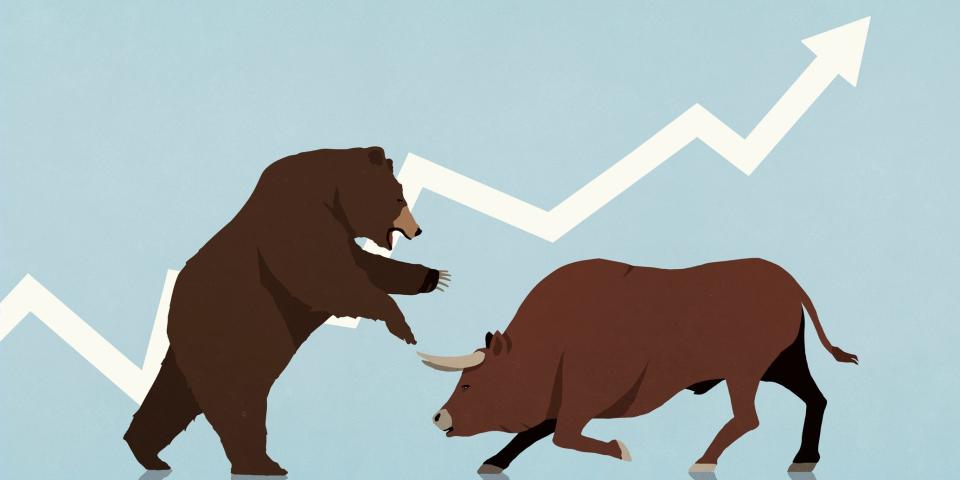The S&P 500’s recent sell-off is actually a sign the bull market is here to stay, according to Ken Fisher.
Bear markets don’t typically start with a sharp correction, the market veteran told Fox Business Network.
Investors may be too “fixated” on negative catalysts, like higher inflation, he added.
The recent sell-off in stocks isn’t a reason for investors to flee the market — and it’s actually a sign that the bull rally could push even higher, according to market veteran Ken Fisher.
The founder and co-CIO of Fisher Investments pointed to the recent drop in stocks, with the S&P 500 cutting its 2024 gain of about 10% in half since the end of March, as investors took in a hotter-than-expected March inflation report and pushed back their timeline for Fed rate cuts.
Markets are now expecting just one or two rate cuts for the year, according to the CME FedWatch tool, down from as many as seven projected by the market at the start of the year.
But while investor sentiment has soured, stocks are still on the upswing, Fisher said, and the latest pullback is a blip within a larger bull run.
“It is a bull market. The reality is that we’ve been, for the last three weeks, more or less straight off the top, and there’s a legendary saying that bull markets die with a whimper, not a bang,” Fisher told Fox Business Network on Tuesday, distinguishing between the sudden plunge since March’s all-time highs and more gradual declines that have characterized the start of previous bear markets.
Markets have been too “fixated” on various negative catalysts for stocks, Fisher added, pointing to investor concern regarding rate cuts and elevated inflation. But high prices in the economy could end up falling faster than expected, he suggested, pointing to the steep decline in European inflation, which clocked in at 2.4% in March.
Cooling inflation and strong US economic growth will be enough to power stocks higher, even if the Fed doesn’t cut interest rates as deeply as expected, Fisher said previously.
“This bull market, just enjoy it, even though stocks are volatile from time to time,” Fisher said.
Read the original article on Business Insider
Credit: Source link




